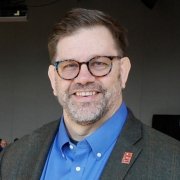Peer Observation
MedEdPearls July 2017: This month, we're highlighting The Peer Observation of Teaching Handbook by Newman et al. (2012) on MedEdPortal, offering valuable guidance for educators seeking reflection, formative feedback, and growth in peer observation programs.
The Peer Observation of Teaching Handbook
A group of faculty developers have come together to carry on a tradition started by Steve Davis, to highlight faculty development resources and strategies each month.
This month we are highlighting a wonderful resource available in MedEdPortal, The Peer Observation of Teaching Handbook written by Newman et al. (2012). We are also hoping to extend an engaging conversation in Twitter at #MedEdPearls.
Whether you are seeking reliable data about teaching for your educator's portfolio or starting a peer observation program, The Peer Observation of Teaching Handbook provides guidance which encourages reflection, formative feedback, and growth for teachers. The handbook offers processes, rationale, and sample observation forms for a variety of educational venues, including: lectures, ambulatory settings, at the bedside, and in small groups.
The handbook is available in a PDF format and the authors encourage modifying forms to meet your needs or creating your own forms. The handbook presents steps to promote reflection and a mutual exchange of ideas at the conclusion of an educational session. The steps include strategies for:
- Before (agree on logistics, purpose, and what elements of teaching are the focus)
- During (what to observe, how to document)
- After (when to meet and how to provide useful formative feedback)
- Avoiding pitfalls (what observer behaviours diminish the benefits of peer observation)
What Peer Observation pearls or questions do you have? Post on twitter at #MedEdPearls
About the MedEdPearls Author

Larry Hurtubise
PhD
- Curriculum and Instruction Consultant, Michael V. Drake Institute for Teaching and Learning, Ohio State University
- Jean Bailey, PhD – Virginia Commonwealth University School of Medicine
- Carrie Bowler, EdD, MS, MLSCM (ASCP) – Mayo Clinic School of Continuous Professional Development
- Kristina Dzara, PhD, MMSc (Educators ’16; Assessment ’16; HCE 2.0 ’17) – Saint Louis University School of Medicine
- Shanu Gupta, MD, SFHM – University of South Florida Morsani College of Medicine and Tampa General Hospital
- Jennifer Hillyer, PhD – Northeast Ohio Medical University
- Larry Hurtubise, PhD, MA (HCE 2.0 '16) – The Ohio State University
- Anna Lama, EdD, MA – West Virginia University School of Medicine
- Machelle Linsenmeyer, EdD, NAOME (Assessment ’07) – West Virginia School of Osteopathic Medicine
- Skye McKennon, PharmD, BCPS, ACSM-GEI – Washington State University Elson S. Floyd College of Medicine
- Rachel Moquin, EdD, MA – Washington University School of Medicine
- Stacey Pylman, PhD – Michigan State University College of Human Medicine
- Leah Sheridan, PhD – Northeast Ohio Medical University
- Lonika Sood, MBBS, MHPE – Washington State University Elson S. Floyd College of Medicine
- Mark Terrell, EdD – Lake Erie College of Osteopathic Medicine
- Stacey Wahl, PhD – Virginia Commonwealth University School of Medicine
Harvard Macy Institute
Harvard Macy Institute
The Harvard Macy Institute educates, connects, and serves health care leaders around the globe by providing advanced faculty development programs, thought leadership, and impactful networking opportunities.
6 Programs

